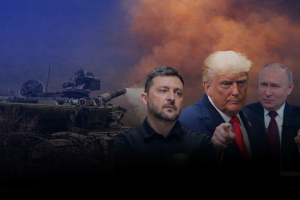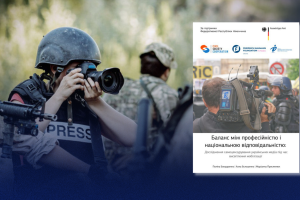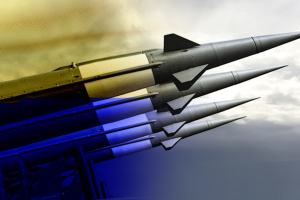The results of a sociological survey conducted by the Ilko Kucheriv Democratic Initiatives Foundation with the sociological service of the Razumkov Center from August 5 to 12 , 2022, with the grant support of the University of Bremen and the International Renaissance Foundation. Some questions were financed by the program Documenting Ukraine, conducted by the Institute for Human Sciences, Vienna (IWM)
The face-to-face survey was conducted in Vinnytsia, Volyn, Dnipropetrovsk, Zhytomyr, Zakarpattia, Zaporizhzhia, Ivano-Frankivsk, Kyiv, Kirovohrad, Lviv, Mykolaiv, Odesa, Poltava, Rivne, Sumy, Ternopil, Kharkiv, Khmelnytskyi, Cherkasy, Chernihiv, Chernivtsi oblasts and the city of Kyiv (in Zaporizhzhia, Mykolaiv and Kharkiv oblasts – only in territories controlled by the Ukrainian government and where no hostilities are taking place).
The survey was conducted in 112 settlements (57 urban and 55 rural) by stratified multistage sampling using random sampling at the first stages of sampling and quota sampling at the final stage (when respondents were selected by gender and age quotas). The sampling structure represents the demographic structure of the adult population in the territories where the survey was conducted at the beginning of 2022 (by age, gender, and type of settlement).
2,024 respondents aged 18 years and older were surveyed. The theoretical error in sampling does not exceed 2.3%. At the same time, additional systematic deviations in sampling may be due to the consequences of Russian aggression, in particular the forced evacuation of millions of citizens.
Democracy During War
- Ukrainian society has had a paradoxical attitude toward democracy for a long time. On the one hand, democracy was certainly considered a preferred type of system for Ukraine. On the other hand, there also remained a persistent demand for a strong hand that could restore order.
- This paradox has not disappeared since the beginning of the Russian full-scale invasion. But the demand for democracy and its prioritization has grown much more than for a strong hand. Thus, as of the moment of the survey, 64% of respondents believe that democracy is the most preferable form of government for Ukraine. 14% think autocracy can be better than democracy under certain circumstances, and another 13% of people say it doesn't matter to them what type of regime it is. These rates of support for democracy are the highest in many years of observation: by 2014 less than 50% supported the priority of democracy, after the Revolution of Dignity this rate rose to 54%, but only after the outbreak of the full-scale war did it exceed 60%.
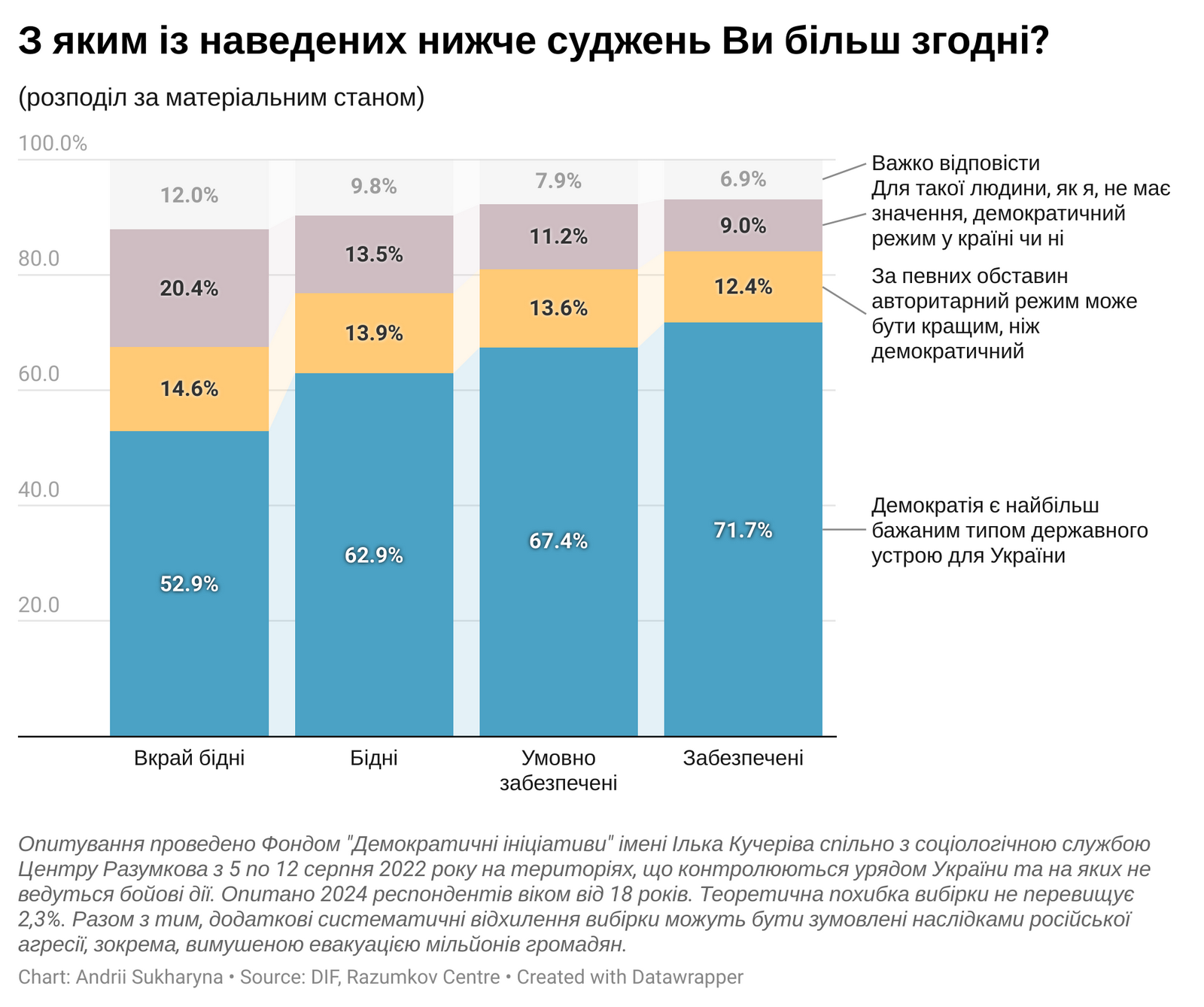
- The demand for a strong hand, on the contrary, was gradually decreasing. Today, however, the situation is somewhat different, with over 58% believing that a few strong leaders can do more for the country than all the laws and discussions. Before the full-scale war, this rate did not exceed 55%. However, this increase is significantly less than the increase in support for democracy. It should also be noted that the highest rates of support for the strong hand were recorded back in the late 2000s and were about 75%.
- In the conditional dichotomy of freedom or abundance, Ukrainian society remains divided. 31% of respondents, in exchange for their own well-being, are willing to sacrifice a share of their rights and civil liberties to the state. More than 47% are willing to suffer some economic difficulties for the sake of personal freedom and guarantees of all civil rights. Another 22% were uncertain about their own answer. In spite of this separation, a certain dynamic can be noticed. On the whole, the proportion of those hesitating with an answer in this survey has decreased significantly. Traditionally, the answers to this question were divided into three relatively equal shares, so we can now say that some people have decided on their preferences.
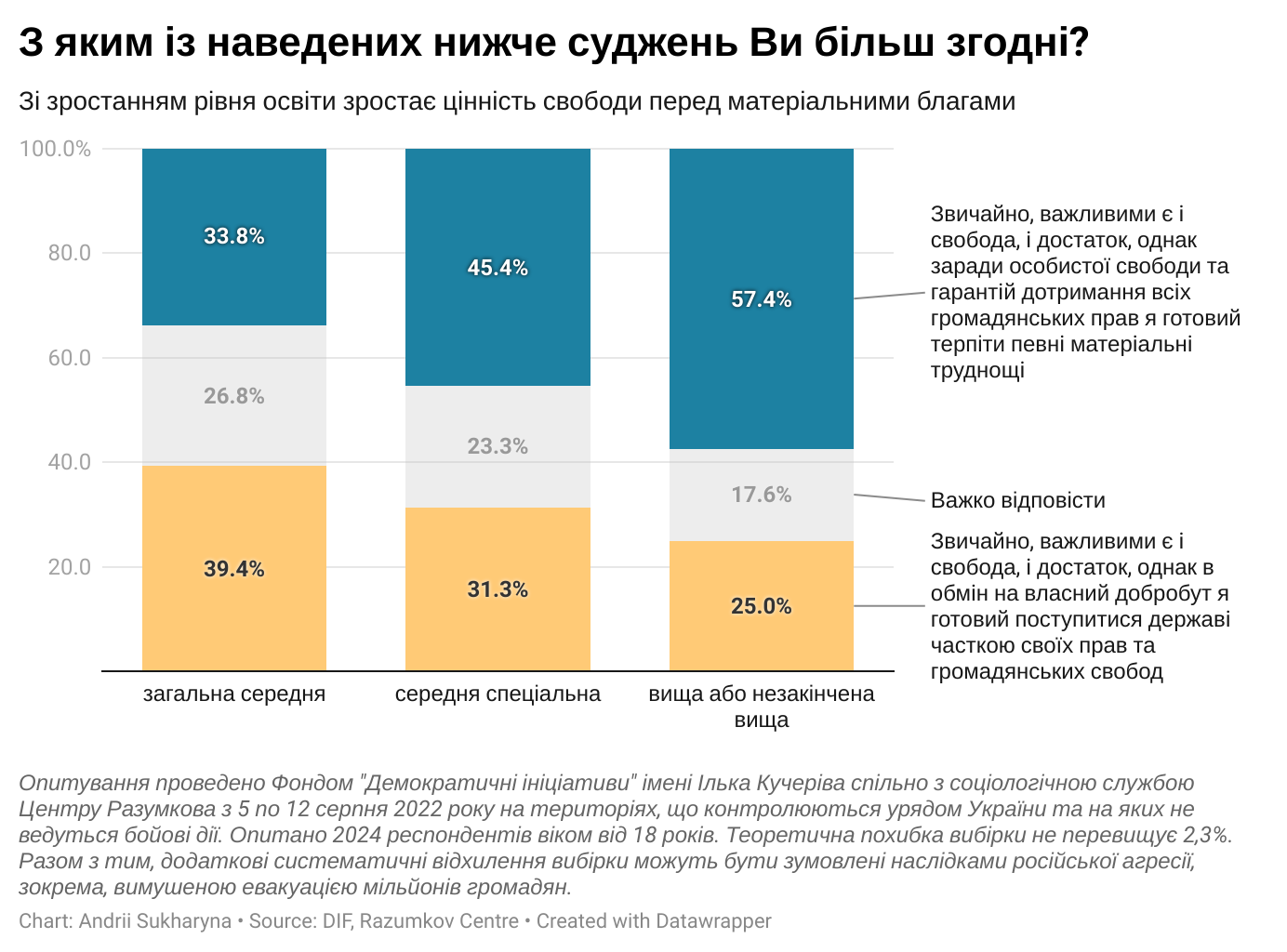
- In the case of the contrast between freedom and safety, respondents' answers were also divided. 39% prioritize safety over freedom, while 34.5% prioritize freedom over safety. Another 26.6% of respondents had difficulty answering.
What is it That Unites Us?
- More than 90% of Ukrainians are proud of their citizenship. (54.5% are very proud and 36% are rather proud). This is the highest indicator for the entire period of sociological observation.
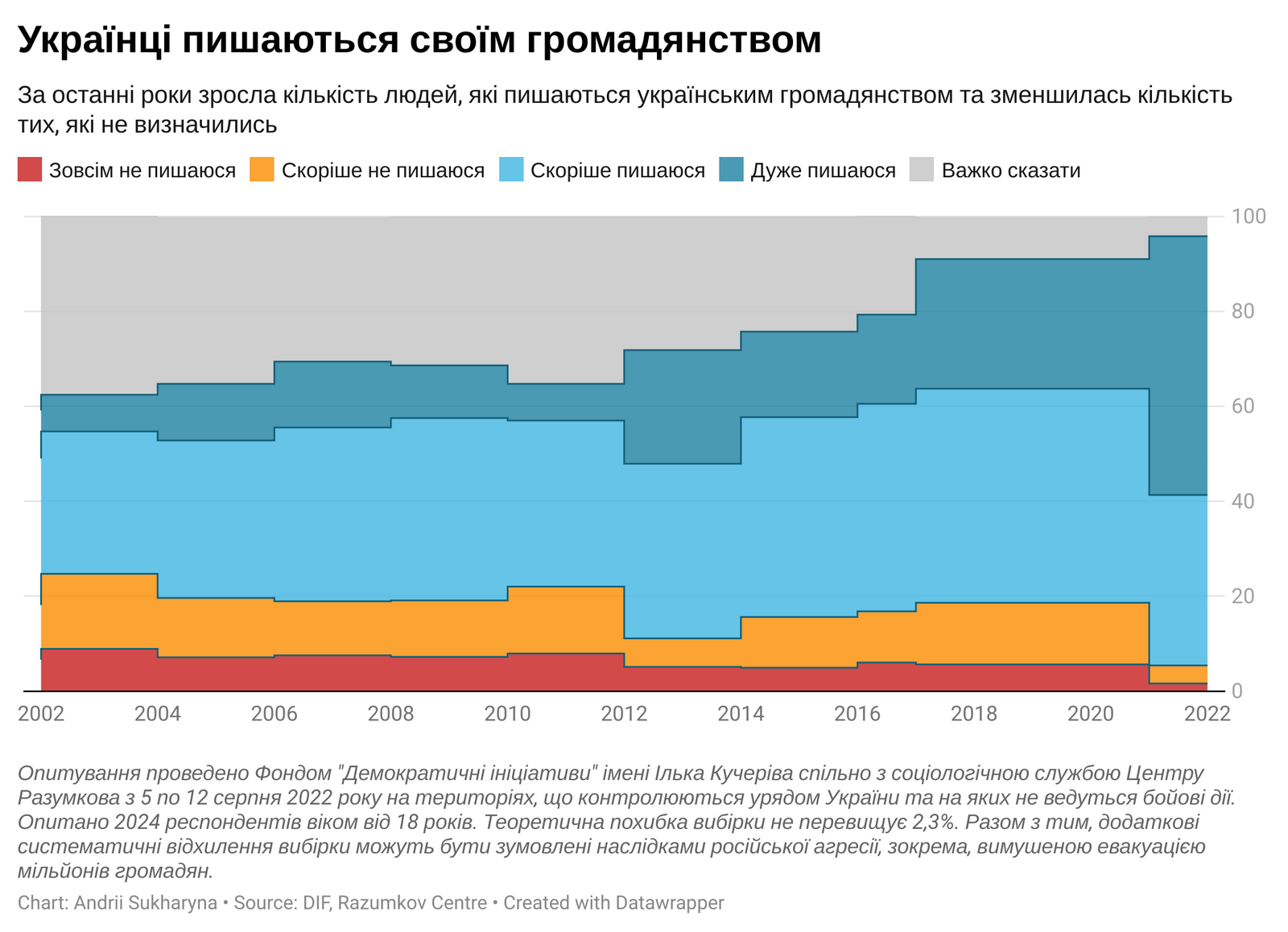
- High rates are also noted in relation to the main identification of people as citizens of Ukraine. Thus, 72% of respondents identify themselves as citizens of Ukraine, 12% as residents of the village, rayon or city where they live, and 6% as residents of the region where they live.
- The faith that the war will be won is what unites Ukrainian society. This is the opinion of 72.5% of respondents. Another 48% mention faith in a brighter future, and 36% mention patriotic feelings.
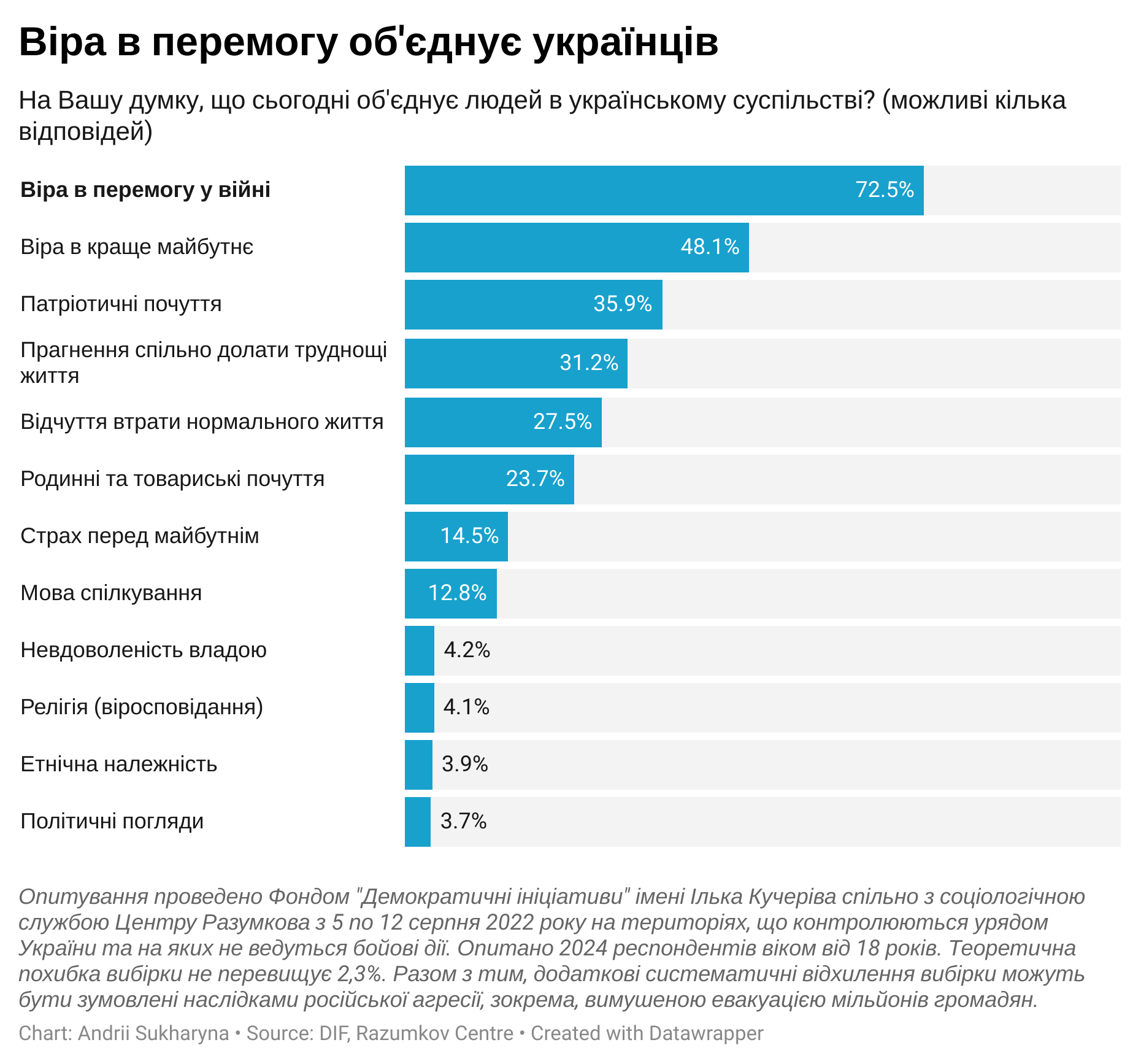
- 37% of respondents believe that during the years of independent Ukraine there have been more positive aspects than negative. 40.5% say the positive and negative aspects were roughly equal, and 15% say there were more negative aspects. Despite the war, the proportion of positive ratings is the highest during the observation period. Younger respondents tend to be more optimistic in their opinions of Ukrainian history.
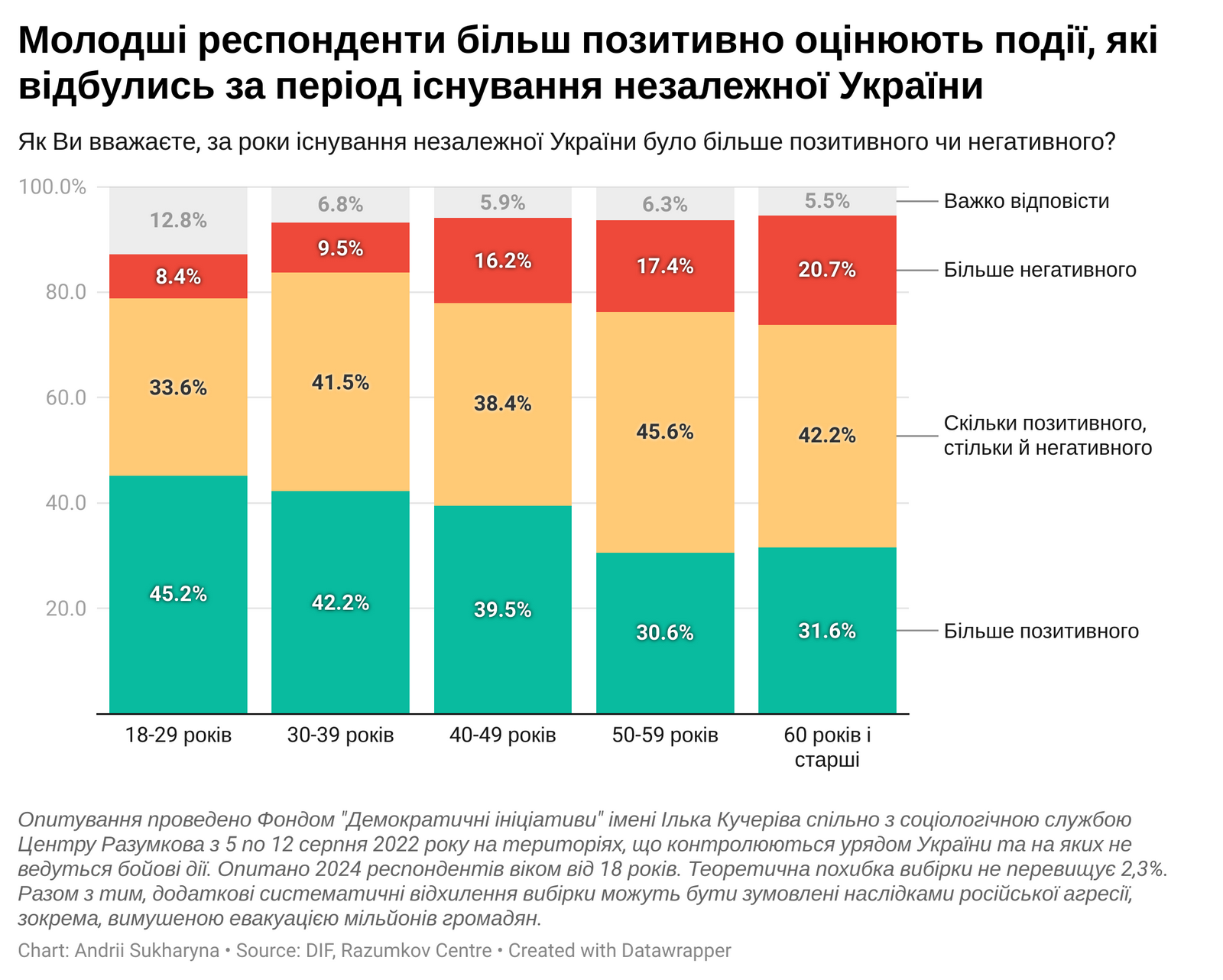
- About 90% of respondents want to build their future in Ukraine and only 4% do not want to do this.
- 68% of respondents consider Ukraine to be a truly independent state. 16% disagree with this statement.
- If a referendum on Ukrainian independence were held now, 87.5% of respondents would vote for Ukrainian independence. Against this – a little more than 3%. Another 5.5% said they would not vote in the referendum.
The War
- More than 90% of respondents believe that Ukraine will win this war. (77% – do believe and 15% – rather believe). Only 4% of respondents do not believe or rather do not believe in victory.
- 31% of those who believe in victory believe that it will happen before the end of this year. 34% believe it will happen in 1-2 years. 7% believe it will require 3 to 5 years. Another 23% had difficulty answering this question, and a few percent say victory will come in the very long term.
- But the question arises, what can be considered a victory? The majority of respondents (55%) say that the withdrawal of Russian troops from the entire territory of Ukraine and the restoration of borders as of January 2014 can be considered a victory. Another 20.5% are even more radical – a victory in the war for them would be the destruction of the Russian army and assistance to the revolt/breakdown inside Russia. A relatively small proportion of respondents would consider the end of the war with some kind of concessions from Ukraine a victory. About 9% would consider the withdrawal of Russian troops from all of Ukrainian territory except occupied Crimea a victory, 7.5% would consider the restoration of the status quo as of February 23, 2022, and 3% would consider the end of the war, even if the Russian army remains in the territories that were occupied as a result of the full-scale invasion.
- More than 75% of respondents will support the decision after the victory of Ukraine and the de-occupation of its territory to completely sever all relations with the Russian Federation up to a complete ban on the entry of Russians into Ukraine.
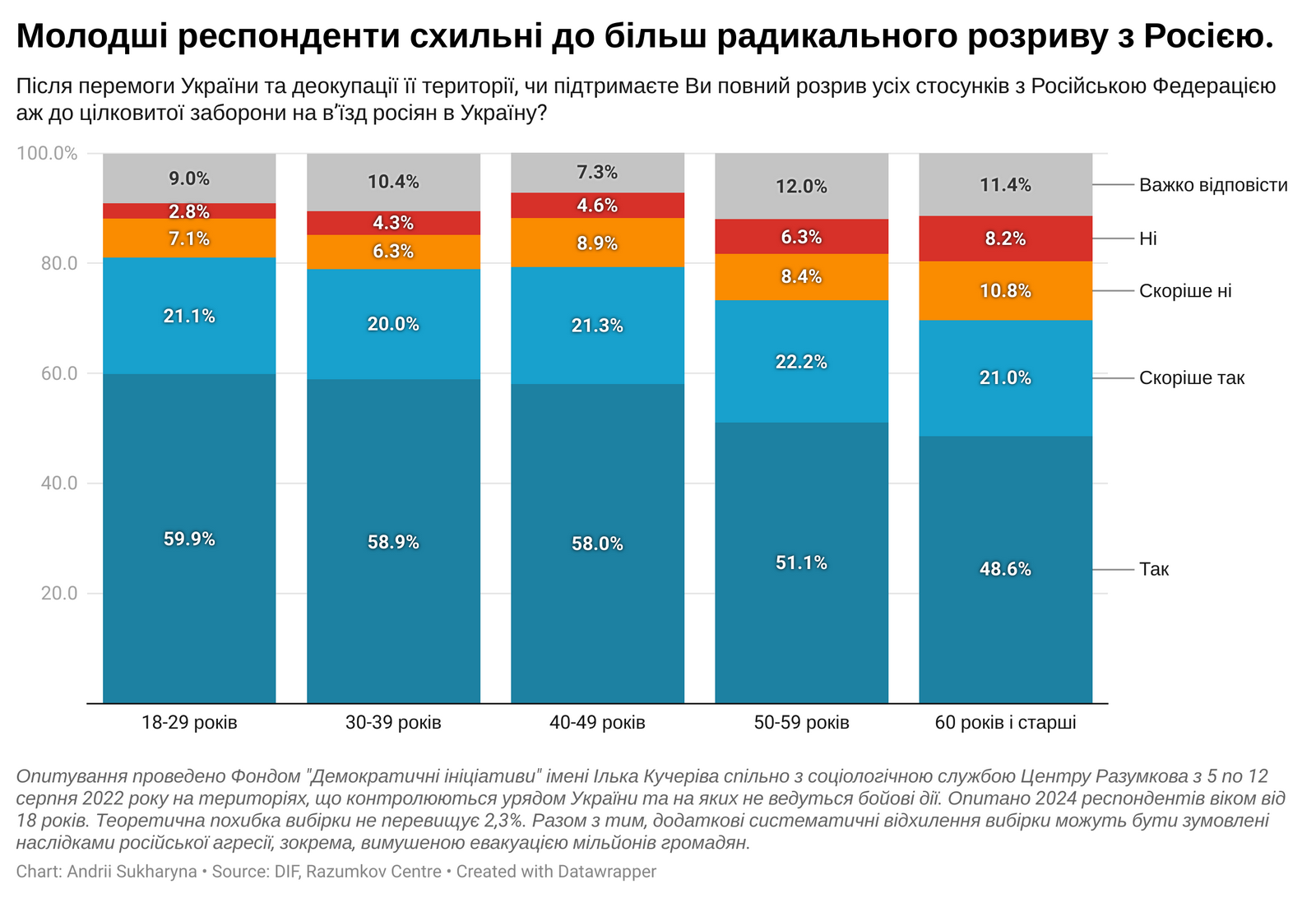
- 86% of respondents believe that the Russian leadership is primarily responsible for the war in Ukraine. 42.5% also believe that the same responsibility lies with the citizens of Russia. At the same time, about 20%, in addition, blame the Ukrainian leadership for the invasion, and 18% and 16%, respectively, blame NATO member states and the U.S. leadership.
- Despite the war, Ukrainians mostly think positively about the future of Ukraine. Yes, hope is the most common feeling expressed in opinions about the future of Ukraine – 65.5% of respondents experience it. 40% of respondents are optimistic. Anxiety affects 31.5% of respondents, while 23.5% have confidence in the future.





